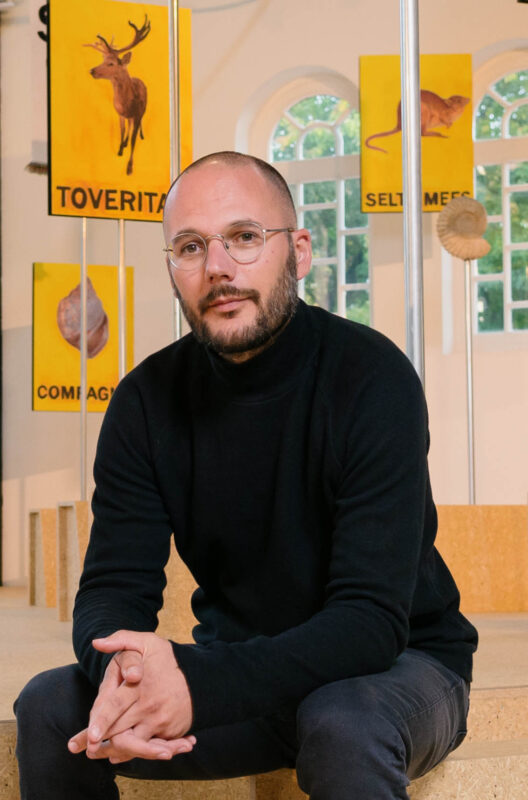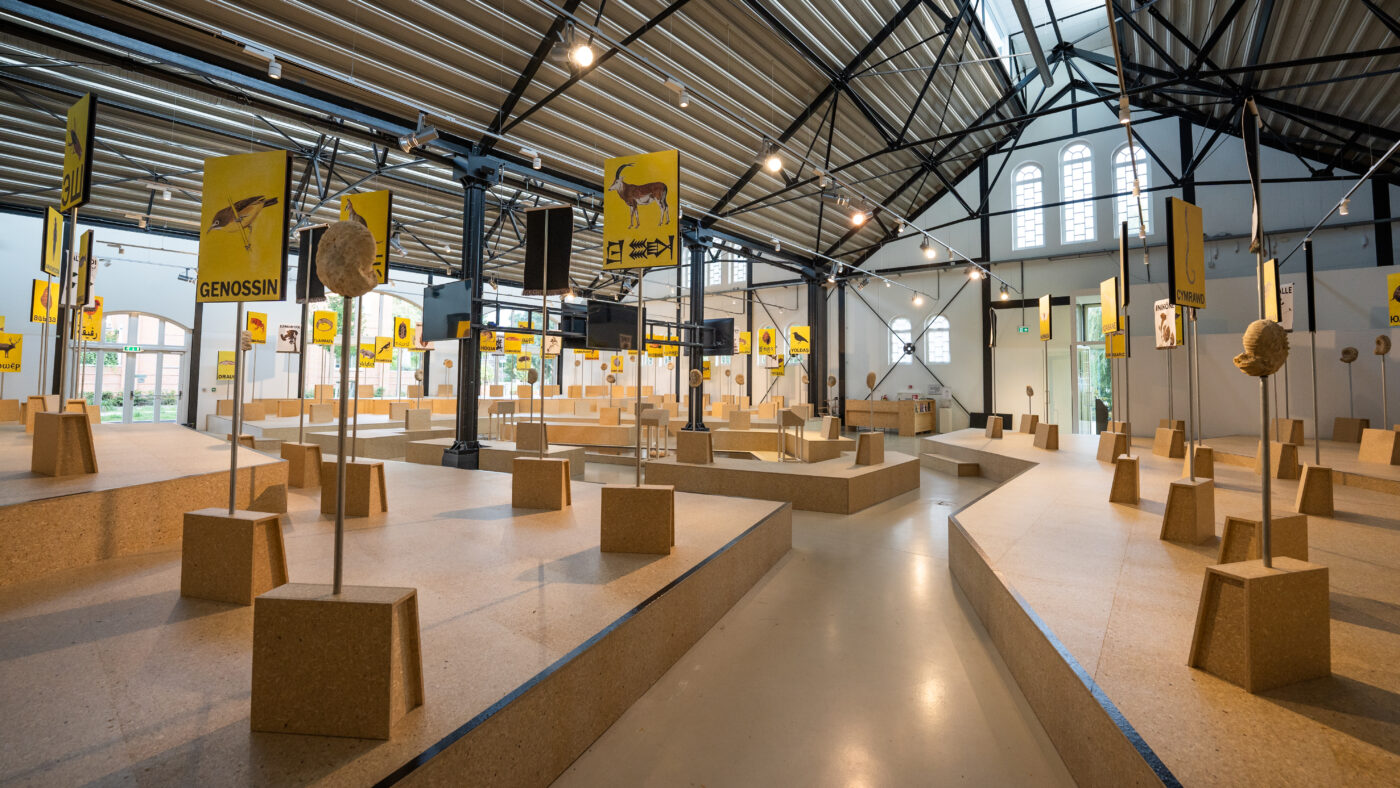 Court for Intergenerational Climate Crimes (2021-2022) by Radha D'Souza and Jonas Staal, commissioned by Framer Framed | Photo: Ruben Hamelink
Court for Intergenerational Climate Crimes (2021-2022) by Radha D'Souza and Jonas Staal, commissioned by Framer Framed | Photo: Ruben Hamelink Announcement: Court for Intergenerational Climate Crimes
An updated page for this project is available here.
The Court for Intergenerational Climate Crimes (CICC) is a collaboration between Indian writer, lawyer and activist Radha D’Souza and Dutch artist Jonas Staal, produced by Framer Framed. The project consists of a large-scale installation in the form of a tribunal that prosecutes intergenerational climate crimes. The inauguration of the tribunal will take place on 24 September 2021. From 28-31 October, the CICC will hold hearings against Unilever, ING, Airbus and the Dutch State.
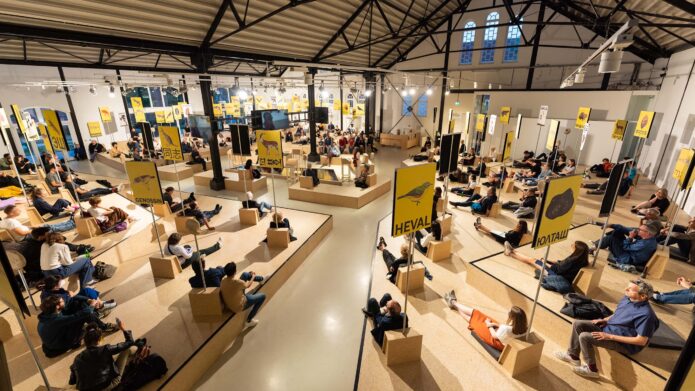
Court for Intergenerational Climate Crimes (2021)
Artist: Radha D’Souza and Jonas Staal, photo: Ruben Hamelink. Commissioned by Framer Framed, Amsterdam
The CICC will hold hearings in which evidence will be presented by prosecutors and witnesses relating to intergenerational climate crimes committed by corporations and states acting in concert. This is followed by the presentation of evidence of alternative forms of collective action in defense of intergenerational climate justice. Co-produced by Framer Framed Amsterdam, the CICC focuses on corporations registered in the Netherlands as well as the legal frameworks established by the Dutch state system supportive of the corporations. The proceedings of the tribunal will be led by four judges: Radha D’Souza, Sharon H. Venne, Nicholas Hildyard and Rasigan Maharajh. The legal framework of the CICC is based on D’Souza’s book What’s Wrong With Rights (Pluto Press, 2018), a critical analysis of neoliberal legal institutions.
The CICC will provide evidence of past and present climate crimes by looking at their impact on the here and now, as well as on planetary life in the future. As such, the tribunal rejects the linear, individualized narratives that underlie the current legal system. The hearings will be documented online. The evidence and testimony files are then presented to both institutional and activist organizations.
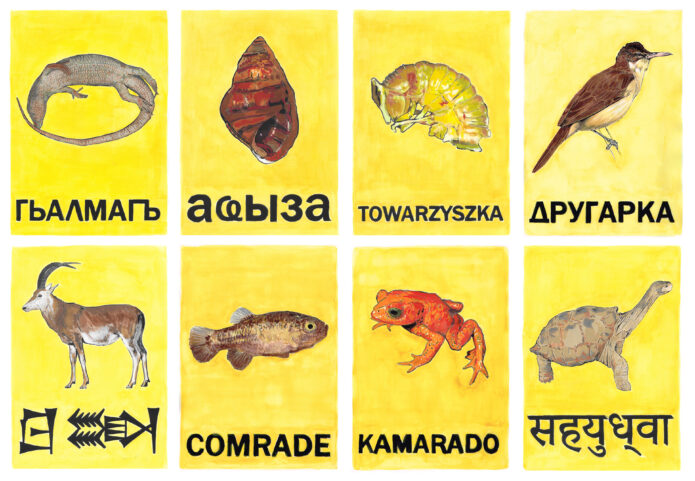
Radha D’Souza & Jonas Staal, ‘Comrades in Extinction’, Study, 2020-21.
In addition to prosecutors, witnesses and the public, the tribunal consists of an ecology populated by extinct animals, plants and ammonite fossils. Each of them, in a different language, is referred to as “comrade”. These non-human ancestors are both evidence of past intergenerational climate crimes and witness to the collective effort of the CICC to contribute to intergenerational climate justice in the present and future.
The hearings include evidentiary testimony and presentations from individuals and collectives representing Kenya Land Alliance, Pueblos Indígenas Amazónicos Unidos en Defensa de sus Territorios (PUINAMUDT), Vettiver Collective, Synergie Nationale des Paysans et Riverains du Cameroun (SYNAPARCAM), Manchester International Law Centre, Réseau d’Information et d’Appui aux ONG Nationales (RIAO-RDC), Centre for Research on Multinational Corporations (SOMO), Stop Wapenhandel – European Network Against Arms Trade, and more.
An introduction to the project by D’Souza en Staal and reflections on intergenerational climate crimes by the judged can be read in the new issue of Errant Journal, Slow Violence, available here.
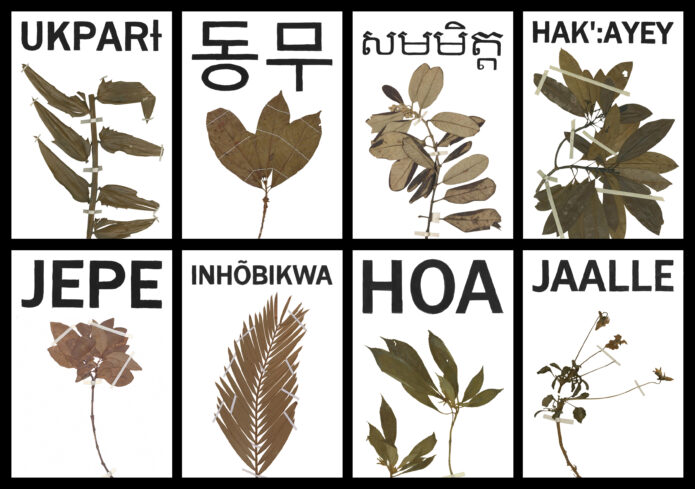
Radha D’Souza & Jonas Staal, ‘Comrades in Extinction’, Study, 2020-21.
Project Team
Radha D’Souza (lawyer, writer, academic); Jonas Staal (artist); Josien Pieterse and Cas Bool (co-producers); Paul Kuipers (architect); Remco van Bladel (designer); Ashley Maum (researcher and co-programmer, Framer Framed); Kees Stad (researcher and co-programmer); Nadine Gouders (coordinator and researcher, Studio Jonas Staal); Jean Medina (production coordinator, Framer Framed); Michael Klinkenberg (production); Vincent W. J. van Gerven Oei (translation advisor); Ruben Hamelink (filmmaker and photographer)
Supported by
Dutch Ministry of Education, Culture and Science, Amsterdam Fonds voor de Kunst (AFK), Mondriaan Fund, Amsterdam, Stimuleringsfonds voor Creatieve Industrie, Rotterdam, Outset Netherlands, Amsterdam.
Partners
Van Abbemuseum, Eindhoven,
Textiellab, Tilburg.
- PRESS RELEASE-Court for Intergenerational Climate Crimes (EN)
- PERSBERICHT-Court for Intergenerational Climate Crimes (NL)
Attachments
Ecology / CICC / Art and Activism / Political Climate /
Network
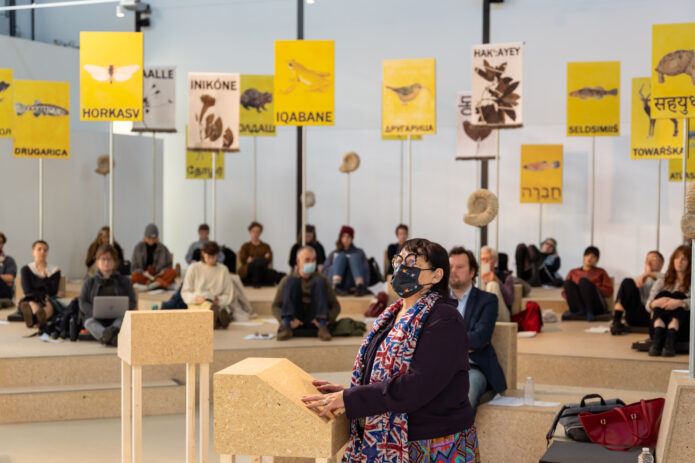
Sharon H. Venne
Cree historian and writer
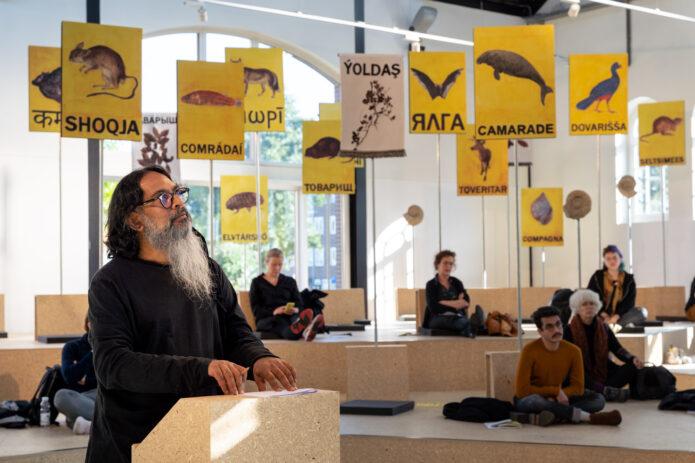
Rasigan Maharajh
Activist scholar and scientist
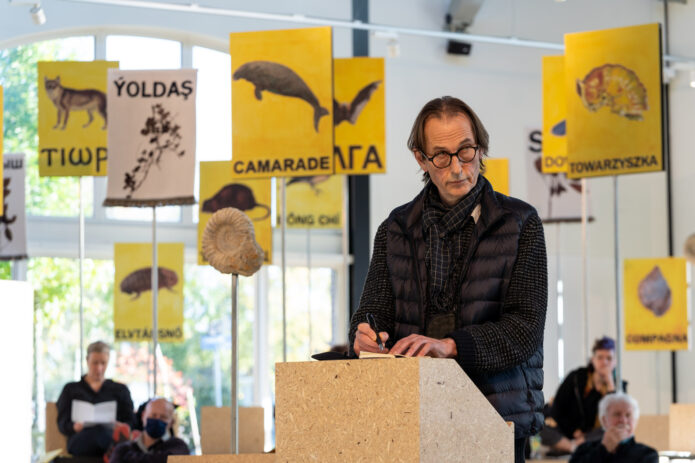
Nicholas Hildyard
Writer and director, The Corner House
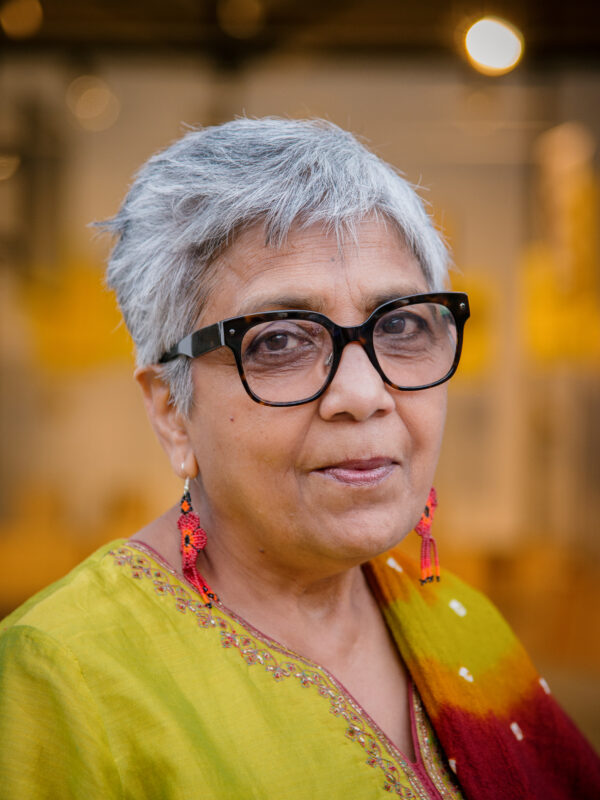
Radha D'Souza
Writer, academic, lawyer and activist
